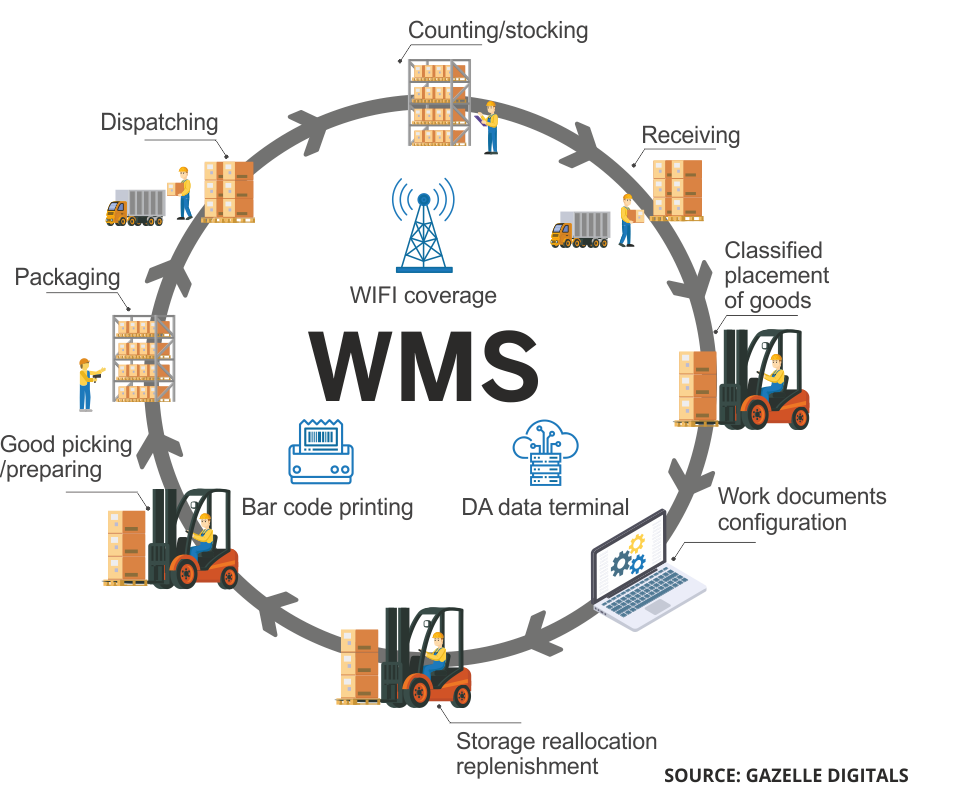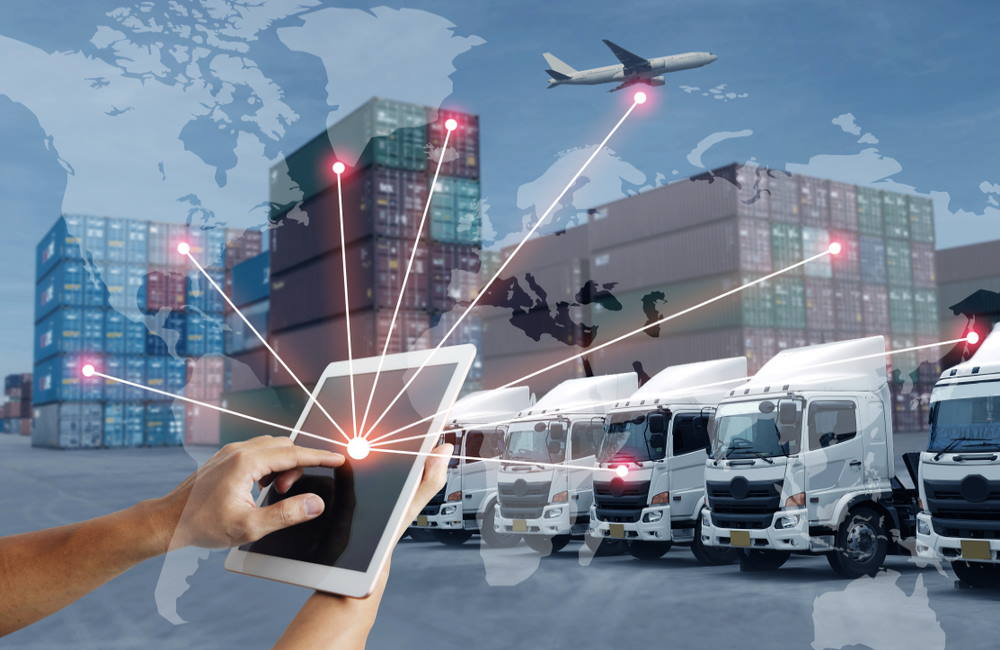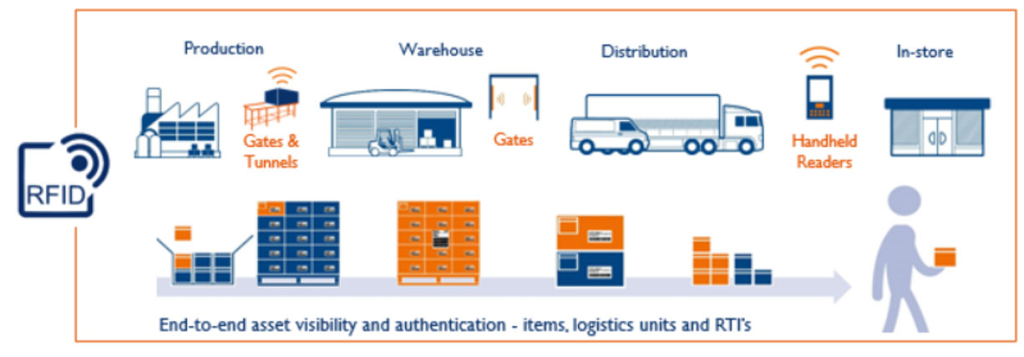In today’s fast-paced and interconnected world, logistics plays a pivotal role in ensuring the smooth flow of goods and services throughout the supply chain. As the demand for efficiency and cost-effectiveness increases, logistics professionals are turning to technology and automation to revolutionize their operations. From warehouse management systems and transportation management systems to fleet tracking, RFID, Internet of Things (IoT), and autonomous vehicles, logistics technology is transforming the way we manage and optimize our supply chains.
- Warehouse Management Systems (WMS):
Warehouse Management Systems optimize the movement of goods within warehouses. These software solutions automate inventory management, order fulfilment, and real-time stock tracking. By reducing errors and enhancing productivity, WMS improves warehouse efficiency and lowers costs.
- Transportation Management Systems (TMS):
Transportation Management Systems revolutionize transportation operations. They enable effective planning, execution, and optimization of shipments. With features like route planning, carrier selection, and real-time tracking, TMS lowers transportation costs, enhances route efficiency, and improves customer service.
- Fleet Tracking:
Fleet tracking, utilizing GPS and telematics, offers real-time vehicle monitoring. It provides insights into vehicle location, performance, and driver behaviour. By optimizing routes, improving fuel efficiency, and enhancing driver safety, fleet tracking ensures timely and secure deliveries.
- RFID Technology:
Radio Frequency Identification (RFID) technology simplifies inventory management and supply chain visibility. Using RFID tags, logistics professionals can track and identify products in real-time. This enhances supply chain traceability, reduces errors, and improves overall efficiency.
- Internet of Things (IoT):
The Internet of Things (IoT) enables the collection and sharing of data among interconnected devices. IoT devices, equipped with sensors, facilitate real-time monitoring of assets, such as containers and vehicles. This data-driven approach optimizes supply chain operations, predicts maintenance needs, and ensures product quality.
- Autonomous Vehicles:
Autonomous vehicles, such as drones and self-driving trucks, transform logistics operations. Drones are revolutionizing last-mile delivery, reaching remote areas, and overcoming logistical challenges. Self-driving trucks offer the potential for automated long-haul transportation, reducing labour costs and enhancing efficiency.
Technology and automation are revolutionizing logistics by streamlining operations, improving efficiency, and enhancing customer satisfaction. Warehouse Management Systems, Transportation Management Systems, fleet tracking, RFID technology, IoT, and autonomous vehicles empower logistics professionals to achieve cost savings, optimize routes, and ensure seamless supply chain operations. By embracing these advancements, organizations can thrive in a rapidly evolving logistics landscape.
Resources:
https://itgtechnology.vn/cong-nghe-rfid-trong-logistics-chuoi-cung-ung/
https://www.zetes.com/sv/technologies-consumables/rfid-in-supply-chain
https://envuetelematics.com/what-are-fleet-tracking-solutions/



Great post! It effectively highlights the transformative impact of technology and automation on logistics, emphasizing the benefits of adopting these advancements for streamlining supply chain operations.